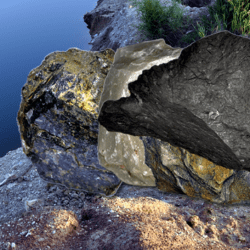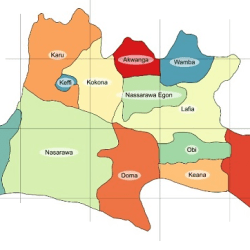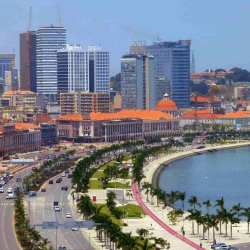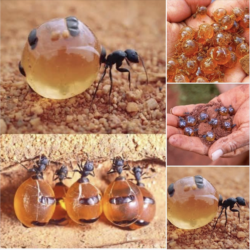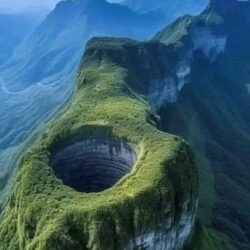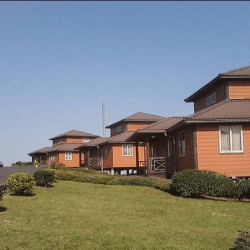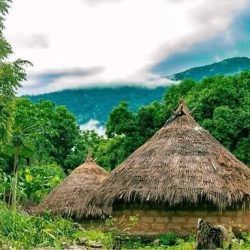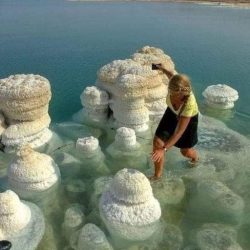Nigeria is one of those countries in Africa that has a wide variety of different natural resources. Nigeria is richly endowed with a variety of Natural Resources ranging from precious metals and various stones to industrial such as Barites, Gypsum, Kaolin and Marble. Most of these are yet to be exploited.

Statistically, the level of exploitation of these minerals is very low in relation to the extent of deposits found in the country. One of the objectives of the new National Policy on Solid Minerals is to ensure the orderly development of the mineral resources of the country.
Nigerian States and Their Natural Resources
| S/N | STATE | Natural Resources |
|---|---|---|
| 1 | Abia | Gold, Lead/Zinc, Limestone, Oil/Gas & Salt |
| 2 | Abuja | Cassiterite, Clay, Dolomite, Gold, Lead/Zinc, Marble & Tantalite |
| 3 | Adamawa | Bentonite, Gypsium, Kaolin & Magnesite |
| 4 | Akwa Ibom | Clay, Lead/Zinc, Lignite, Limestone, Oil/Gas, Salt & Uranium |
| 5 | Anambra | Clay, Glass-Sand, Gypsium, Iron-ore, Lead/Zinc, Lignite, Limestone, Phosphate & Salt |
| 6 | Bauchi | Gold, Cassiterite (tine ore), Columbite, Gypsium, Wolfram, Coal, Limestone, Lignite, Iron-ore & Clay |
| 7 | Bayelsa | Glay, Gypsium, Lead/Zinc, Lignite, Limestone, Maganese, Oil/Gas & Uranium |
| 8 | Benue | Barite, Clay, Coal, Gemstone, Gypsium, Iron-Ore, Lead/Zinc, Limestone, Marble & Salt |
| 9 | Borno | Bentonite, Clay, Diatomite, Gypsium, Hydro-carbon, Kaolin & Limestone |
| 10 | Cross River | Barite, Lead/Zinc, Lignite, Limestone, Manganese, Oil/Gas, Salt & Uranium |
| 11 | Delta | Clay, Glass-sand, Gypsium, Iron-ore, Kaolin, Lignite, Marble & Oil/Gas |
| 12 | Ebonyi | Gold, Lead/Zinc & Salt |
| 13 | Edo | Bitumen, Clay Dolomite, Phosphate, Glass-sand, Gold, Gypsium, Iron-ore, Lignite, Limestone, Marble &Oil/Gas |
| 14 | Ekiti | Feldspar, Granite, Kaolin, Syenite & Tatium |
| 15 | Enugu | Coal, Lead/Zinc & Limestone |
| 16 | Gombe | Gemstone & Gypsium |
| 17 | Imo | Gypsium, Lead/Zinc, Lignite, Limestone, Marcasite, Oil/Gas, Phosphate & Salt |
| 18 | Jigawa | Butyles |
| 19 | Kaduna | Amethyst, Aqua Marine, Asbestos, Clay, Flosper, Gemstone, Gold, Graphite, Kaolin, Hyanite, Mica, RockCrystal, Ruby, Sapphire, Sihnite, Superntinite, Tentalime, Topaz & Tourmaline |
| 20 | Kano | Gassiterite, Copper, Gemstone, Glass-sand, Lead/Zinc, Pyrochinre & Tantalite |
| 21 | Katsina | Kaolin, Marble & Salt |
| 22 | Kebbi | Gold |
| 23 | Kogi | Cole, Dolomite, Feldspar, Gypsium, Iron-ore, Kaolin, Marble, Talc & Tantalite |
| 24 | Kwara | Cassiterite, Columbite, Feldspar, Gold, Iron-ore, Marble, Mica & Tantalite |
| 25 | Lagos | Bitumen, Clay & Glass-sand |
| 26 | Nasarawa | Amethyst (Topaz Garnet), Barytex, Barite, Cassirite, Chalcopyrite, Clay, Columbite, Coking Coal,Dolomite/Marble, Feldspar, Galena, Iron-ore, Limstone, Mica, Salt, Sapphire, Talc, Tantalite, TourmalineQuartz & Zireon |
| 27 | Niger | Gold, Lead/Zinc & Talc |
| 28 | Ogun | Bitumen, Clay, Feldspar, Gemstone, Kaolin, Limestone & Phosphate |
| 29 | Ondo | Bitumen, Clay, Coal, Dimension Stones, Feldspar, Gemstone, Glass-Sand, Granite, Gypsium, Kaolin, Limestone& Oil/Gas |
| 30 | Osun | Columbite, Gold, Granite, Talc, Tantalite & Tourmaline |
| 31 | Oyo | Aqua Marine, Cassiterite, Clay, Dolomite, Gemstone, Gold, Kaolin, Marble, Silimonite, Talc & Tantalite |
| 32 | Plateau | Barite, Bauxite, Betonite, Bismuth, Cassiterite, Clay, Coal, Emeral, Fluoride, Gemstone, Granite, Iron-ore,Kaolin,Lead/Zinc, Marble, Molybdenite, Phrochlore, Salt, Tantalite/Columbite, Tin & Wolfram |
| 33 | Rivers | Clay, Glass-Sand, Lignite, Marble & Oil/Gas |
| 34 | Sokoto | Clay, Flakes, Gold, Granite, Gypsium, Kaolin, Laterite, Limestone, Phosphate, Potash, Silica Sand & Salt |
| 35 | Taraba | Lead/Zinc |
| 36 | Yobe | Soda Ash & Tintomite |
| 37 | Zamfara | Coal, Cotton & Gold |
There are tremendous opportunities for investments in the solid mineral sector of the Nigerian economy. Prospecting licenses for investors (both local and foreign) to participate in the exploitation of the vast mineral resources in Nigeria are granted by the Federal Ministry of Solid Minerals Development.
Profile of Solid Material Deposits in Nigeria
The Proven Nigeria oil reserves are 23 Billion barrels; the gas reserves are 160 Trillion cubic meters.
Talc
Over 40 million tonnes deposits of talc have been identified in Niger, Osun, Kogi, Ogun and Kaduna states. The Raw Materials Research and Development Council (RMRDC)’s 3,000 tonnes per annum catalytic Talc plant in Niger state is the only talc plant in the country. The talc industry represents one of the most versatile sectors of the industrial minerals of the world. The exploitation of the vast deposits would therefore satisfy local demand and that for export.
Gypsum
Gypsum is an important input for the production of cement. It is also used for the production of Plaster of Paris (P.O.P) and classroom chalks. A strategy for large-scale mining of gypsum is urgently required to sustain the existing plants and meet the future expansion. Currently, cement production is put at 8 million tonnes per annum while the national requirement is 9.6 million tonnes. About one billion tonnes of gypsum deposits are spread over many states in Nigeria.
Iron Ore
There are over 3 billion metric tonnes of iron ore in deposits found in Kogi, Enugu and Niger States as well as the Federal Capital Territory . Iron Ore is being mined at Itakpe in Kogi State and is already being beneficiated, up to 67 per cent of iron. The Aladja and Ajaokuta Steel complexes are ready for consumer of billets and other iron products for down-stream industries.
Lead/Zinc
An estimated 10 million tonnes of lead/zinc veins are spread over eight states of Nigeria . Proven reserves in three prospects in the east-central area are 5 million tonnes. Joint venture partners are encouraged to develop and exploit the various lead/zinc deposits all over the country.
Bentonite and Baryte
These are the main constituents of the mud used in the drilling of all types of oil wells. The Nigerian baryte has specific gravity of about 4.3. Over 7.5 million tonnes of baryte have been identified in Taraba and Bauchi States. Large bentonite reserves of 700 million tonnes are available in many states of the federation ready for massive development and exploitation.
Gold
There are proven reserves of both alluvial and primary gold in the schist belt of Nigeria located in the south-western part of the country. The deposits are mainly alluvial and are currently being exploited on a small scale. Private investors are invited to stake concessions on these primary deposits.
Bitume
The occurrence of bitumen deposits in Nigeria is indicated at about 42 billion tonnes; almost twice the amount of existing reserves of crude petroleum. Analytical results suggest that this potential resource can be used directly as an asphalt binder. Most bitumen used for road construction in Nigeria is currently imported.
Coal
Nigerian coal is one of the most bituminous in the world owing to its low sulphur and ash content and therefore the most environment-friendly. There are nearly 3 billion tonnes of indicated reserves in 17 identified coal fields and over 600 million tonnes of proven reserves.
Rock Salt
The national annual demand for table salt, caustic soda, chlorine, sodium bicarbonate, sodium hydrochloric acid and hydrogen peroxide exceeds one million tonnes. A colossal amount of money is expended annually to import these chemicals by chemical and processing companies including tanneries and those in food and beverages, paper and pulp, bottling and oil sector. There are salt springs at Awe ( Plateau State ), Abakaliki and Uburu ( Ebonyi State ), while rock salt is available in Benue State . A total reserve of 1.5 million tonnes has been indicated, and further investigations are now being carried out by Government.
Gemstones
Gemstone mining has boomed in various parts of Plateau, Kaduna and Bauchi states for years. Some of these gemstones include sapphire, ruby, aquamarine, emerald, tourmaline, topaz, garnet, amethyst; zircon, and fluorspar which are among the world’s best. Good prospects exist in this area for viable investments.
Kaolin
An estimated reserve of 3 billion tonnes of good kaolinitic clay has been identified in many localities in Nigeria.




